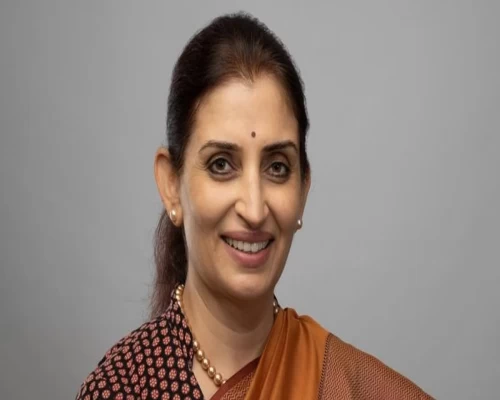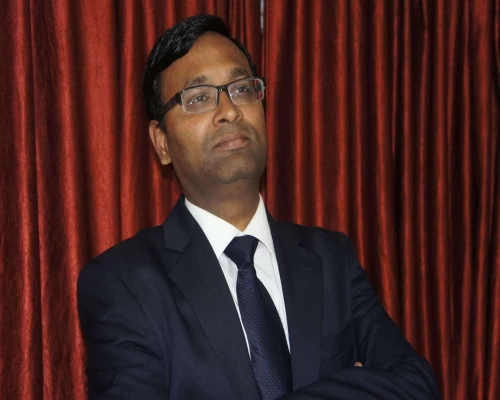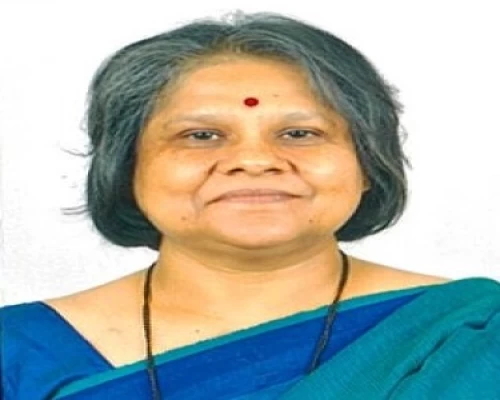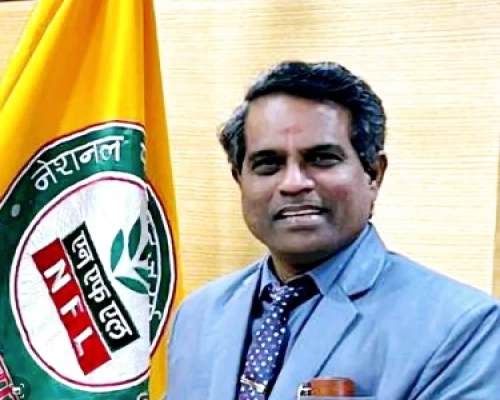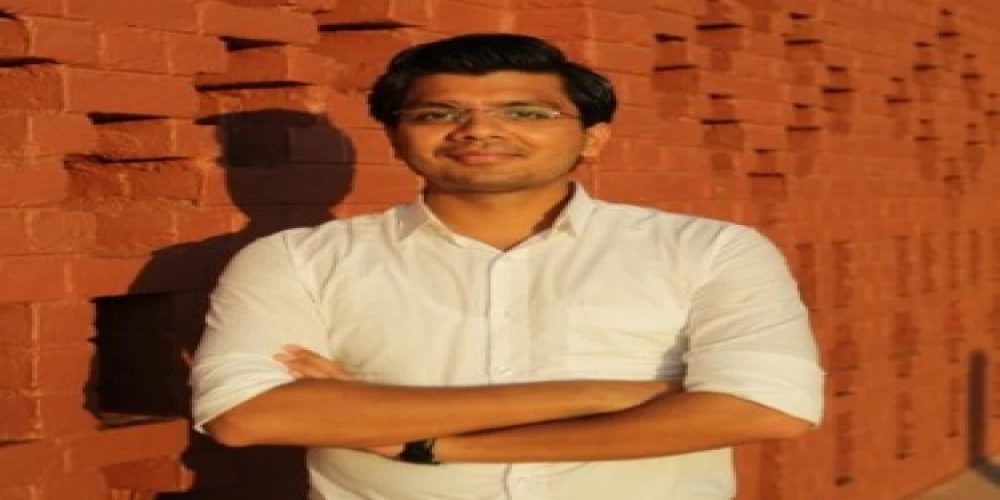
New Delhi: Ensuring governance to the last mile is not only challenging but gratifying too as we collectively strive to ensure that no one is left behind during Amrit Kaal of our Independence, and achieve the goal of a developed India by 2047, said Shubham Gupta, a 2019 batch IAS officer of Maharashtra cadre. He is currently posted as an Assistant Collector, Etapalli and Project Officer, ITDP, Bhamragad in Gadchiroli district of Maharashtra.
In an exclusive interview to Bureaucrats India Editor-In-Chief Navneet Anand, Shubham shared a host of very innovative programs that is being run in this naxal-infested district and how government efforts are bringing about substantial transformation here, mainstreaming people and ensuring widespread access of welfare schemes for tribals, poor and marginalized. A Delhi University Economics graduate, Shubham feels that a wholesome approach is required to reach out to the last mile, which is certainly a challenging task but gives you a lot of satisfaction when such enabling measures improve people’s ease of living.
“For example, when we decided to launch the Bike Ambulance, the idea was to make sure that the needy people must get assistance to reach the nearest health facility – Primary Health Centre or Sub Centre – at the earliest to get the required treatment. Bike Ambulances were parked in the remotest areas of Bhamragad, which is a tribal dominated area, to respond to any emergencies,” said Shubham, who is a fitness freak and a voracious reader.
Shubham said the reason behind starting the Bike Ambulance was taking on the challenge of logistics. “It’s been 21 months of posting in Gadchiroli. During heavy rains last year, 212 villages got cut off from the mainstream. Even during light rains about 100 villages get marooned because of absence of all-weather connectivity. Amidst this situation, we introduced Bike Ambulances in the Bhamragad block of Gadchilori district. Initially we have started with three Bike Ambulances in villages Palli, Visamundi, Laheri. These are equipped with first-aid kits and stretchers. We trained the riders to provide first-aid care, so that primary relief could be provided and the patient rushed to the nearest healthcare centre,” he said. The Bike Ambulance has been aiming at improving institutional delivery and reduction in fatalities due to remote medical facilities.
Two projects - Robotics Lab and Mobile Science Laboratory, also known as Project Vignyan - are very close to the heart of Shubham. “There’s a slew of experiences of tribal areas that motivated me to start the project. While handling the office of Project Officer of Tribal Development Department, Bhamragad, I also handled eight Government Ashram Schools. I observed that the education of tribal children suffered because of shortage of teachers, and plenty of holidays deterring the Foundational Literacy and Numeracy (FLN). Moreover, students lacked curiosity and scientific temper. To give basic knowledge of science, I explored the possibility of starting a Mobile Science Laboratory that incurred the least cost.
The project is currently operational in 16 aashram schools of Etapalli, Bhamragad and Dhanora blocks of Gadchiroli.” The young officer has devised a system that will ensure that the project keeps continuing, once he moves on. He exuded confidence that the project will not collapse owing to a robust model of funding that did not depend on constant government’s support.
The young IAS officer, who has had a childhood filled with struggle, knows well what it means to expose children to futuristic ideas and technologies. Driven by this passion, Shubham has piloted a robotics laboratory in Jarawandi ashram school of Etapalli in Gadchiroli. This is aimed to expose the children to latest technological interventions and reinforce scientific temper (8th standard onwards)
“Through Robotic Labs we want to give people a glimpse of futuristic science. If you may recall Hon PM was recently delivered a coffee-table book by Humanoid and this is a glimpse of the future. The Lab is an initiative to not leave the tribals behind so that when they reach FLN level, Robotics does not sound Greek to them,” said the tech-savvy IAS officer, who has also served in RBI and in the Indian Audit & Accounts Service.
Malnutrition is another issue that plagues the tribal areas. Driven by extraordinary passion and spirit of innovation, the young IAS officer conceived the idea of leveraging Artificial Intelligence (AI) to address some health challenges.
“We were concerned about the health of girls, who were victims of acute malnutrition or undernutrition. With the help of different stakeholders we went to the bottom of the problem and through CSR initiatives, we made an intervention on this. Still a lot needs to be done,” said Shubham, whose LinkedIn page says that he excels in three key skills - leadership, social changes and public relations management.
“AI can work wonders to make life easy. AI is used to monitor the health of girl students in the project ‘Udyog Yantra’. Through a tie-up with Feeding India by Zomato we monitored the health of girl students leveraging AI. After careful study and analysis of data, we introduced a proper menu for the students and found marked improvement in the health of girl students in Ashram Schools in a period of two months. It is a CSR programme and not funded by the government,” he said.
In reply to a question about enhancing people’s income as well as preserving the forest wealth, the Etapalli Assistant Collector revealed that he promoted community forest management among the people under which plantation drives were carried out, which finally led to the tripling of their income. It is a big additional support to them as they are also being provided with benefits of various welfare schemes of Maharashtra government, he said.
“The challenge was making people self-reliant. We tied up again with an NGO, Farming for Forests, for community forest management. People in Gadchiroli grew just one crop, which limited their income. The per capita income of tribal people was just Rs 15,000 per year and similar amount of money they got by tapping on the resources of forest. However, this led to considerable deforestation,” he said.
“This gave us an opportunity to create a programme, where people are paid for preservation of the trees, which is an add on their income apart from agriculture. This also helped in contributing to carbon sequestration aligned with Government of India’s goal to ensure an additional carbon sequestration of 2.5-3 million tonnes by 2030,” he said.
Dwelling on another Green project that enabled use of fallow land for developing forest Shubham said, “We became part of development of 1000 hectare acres of land for forest. We contributed 100 acres of private fallow land, distributed saplings to people in Etapalli and built a system that if the trees survived for two years, then from third year onwards we will be registering them for Carbon Credit Projects in the voluntary International Exchanges. Those credits will be able to provide around Rs 65,000 per capita, per annum. That’s the way to triple the income of farmers.”
Talking about digitization, Shubham said: “The use of technology is immensely helping the rural economy. It is not only checking pilferage and spillover as the people get money directly into their accounts but also spreading digital and financial literacy.” To bring home his point, Shubham referred to the ease with which people get all kinds of certificates including caste certificates in a hassle free manner.
Referring to his online property tax payment initiative, Shubham said: “We introduced digitisation of property tax to cut the cumbersome task of storing paper bills. Now people of Etapalli get reminders on their phones if they haven't paid taxes. Digitisation has changed tax collection methods. People are so happy and their happiness is what gives us the real sense of satisfaction.”
Talking about the pulls and pressures of working in a political system, he said: “Being a bureaucrat, we have to deal with people with varied backgrounds – common people, politicians, etc. Instead of seeing political leaders as adversaries, we should engage with them and leverage their experience.”
Shubham can’t hide his excitement when asked about how one of his projects drew attention at the World Economic Forum - his project ‘Caste Certificates on Blockchain' was discussed at the World Economic Forum at Davos in May 2022, as an exemplary use case of Web 3.0 in governance. The passionate tech-savvy IAS officer said, “I learnt during my probation at Nashik that fake caste certificates were made to purchase the protected tribal lands. Etapalli and Bhamragad have around 75 per cent population of Scheduled Tribes and here the caste certificates are like Aadhar cards. All the benefits are provided to tribals on the basis of caste certificates and Aadhar cards. So we devised a system where the caste certificates were immutable and could not be falsified. We started experimenting with blockchain. We got in touch with the wonderful state-owned Maharashtra State Innovation Society (MSIS) that promotes start ups and finalised one that issued caste certificates on blockchain.” This was the first project in the country where caste certificates were issued using blockchain technology.
On the issue of Naxalism, Shubham said that both the Union and State government had started taking a very nuanced approach, “We are reaching out to people to provide access to government benefits that they are entitled to. We are constructing roads, providing mobile accessibility, building schools and libraries. Even the armed forces are strategically dealing with the issue. I see that in future this ideology may end.”
Lauding the efforts of Bureaucrats India in highlighting the stories of good governance, Shubham said: “Bureaucrats India is doing an incredible job. There are very few platforms like Bureaucrats India where positive things are highlighted. I wish very good luck to the entire team of Bureaucrats India for their future endeavors.”


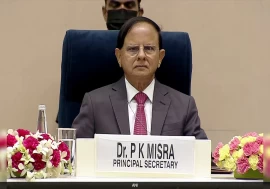
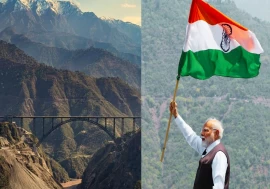
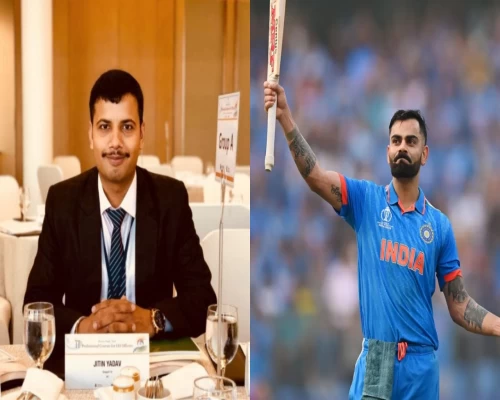
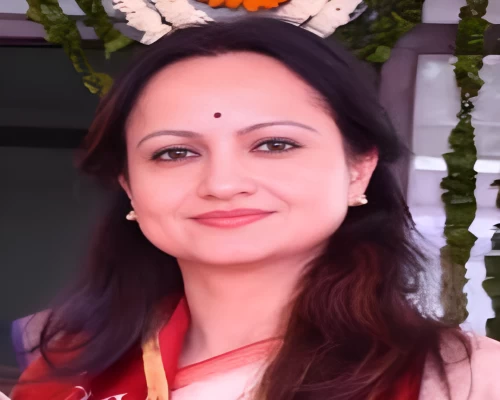
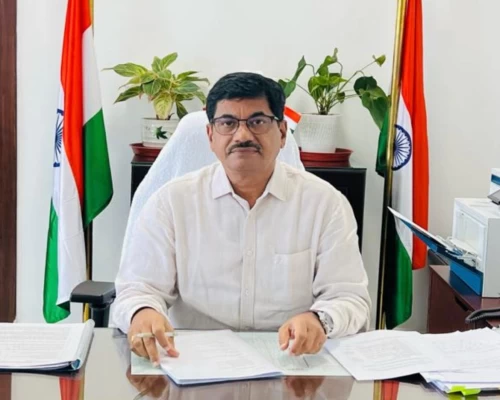
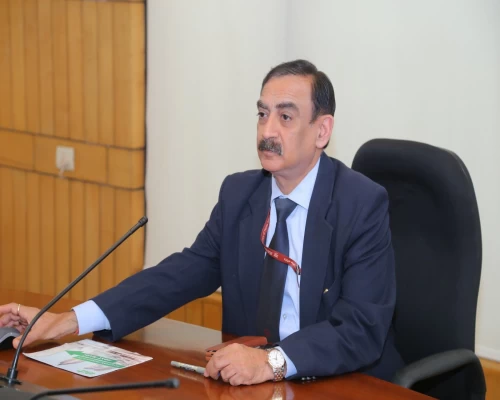
_500_x_400.webp)
